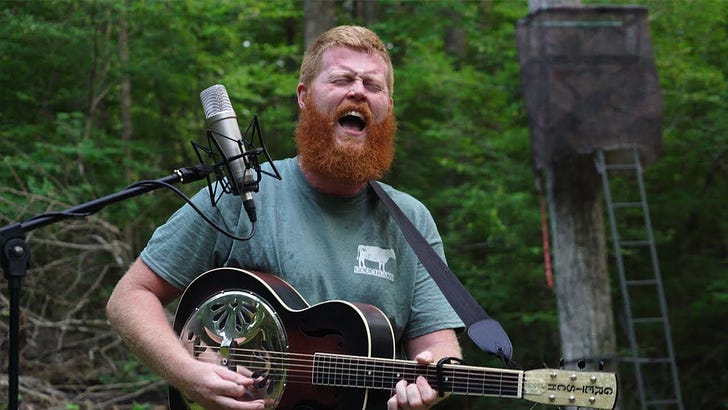A few months ago, Christopher Anthony Lunsford (better known by his stage name Oliver Anthony) gave himself to Christ and promised to leave a life of drugs and mental illness to serve the Lord. A month later, his song “Rich Men North of Richmond,” went viral and skyrocketed to number 1 on the Billboard Hot 100. If you haven’t listened to it yet, or you just want to hear it again, here it is:
Of course, his style speaks most to rural working-class Americans. The song became an overnight anthem for the forgotten men and women. These are the people who grow most of our food, produce most of our stuff, and work many of the hardest jobs.
Oliver Anthony’s popularity has faded over the past few months. One day, he’s top of the charts and the most famous man in America. Because elites on both the right and left thought he’d be useful to their cause. But then he started saying things he wasn’t supposed to, like how politicians on both sides were guilty of selling out the American people. Or how drugs and porn will destroy a man’s soul. He even read the Bible on the Joe Rogan Experience, one of the largest cultural platforms in the country. So they cast him aside.
Isn’t Oliver Anthony a perfect analogy for the forgotten men and women he represents? The elites are quick to use the working class (or the song) as a political prop when it suits them, only to betray them when election season passes.
The forgotten men and women are some of the most important people in America, but they aren’t treated like it. They work long hours and don’t get paid nearly as much as they should. The average farm worker makes $20,000 to $40,000 a year (depending on the source). Is there anyone in the US more important than our farmers? Factory workers aren’t much better off, making an average of $40,000 a year. That’s an injustice.
Rich Men North of Richmond wouldn’t have reached number 1 on the Billboard Hot 100 unless LOTS of people listened to it. More than just the farmers and factory workers. 80% of the US lives in urban or suburban areas. While we often think of blue-collar workers as rural, many live in the city too, and they clearly resonated with “Rich Men North of Richmond.”
Keep reading with a 7-day free trial
Subscribe to Main Street Insiders to keep reading this post and get 7 days of free access to the full post archives.



